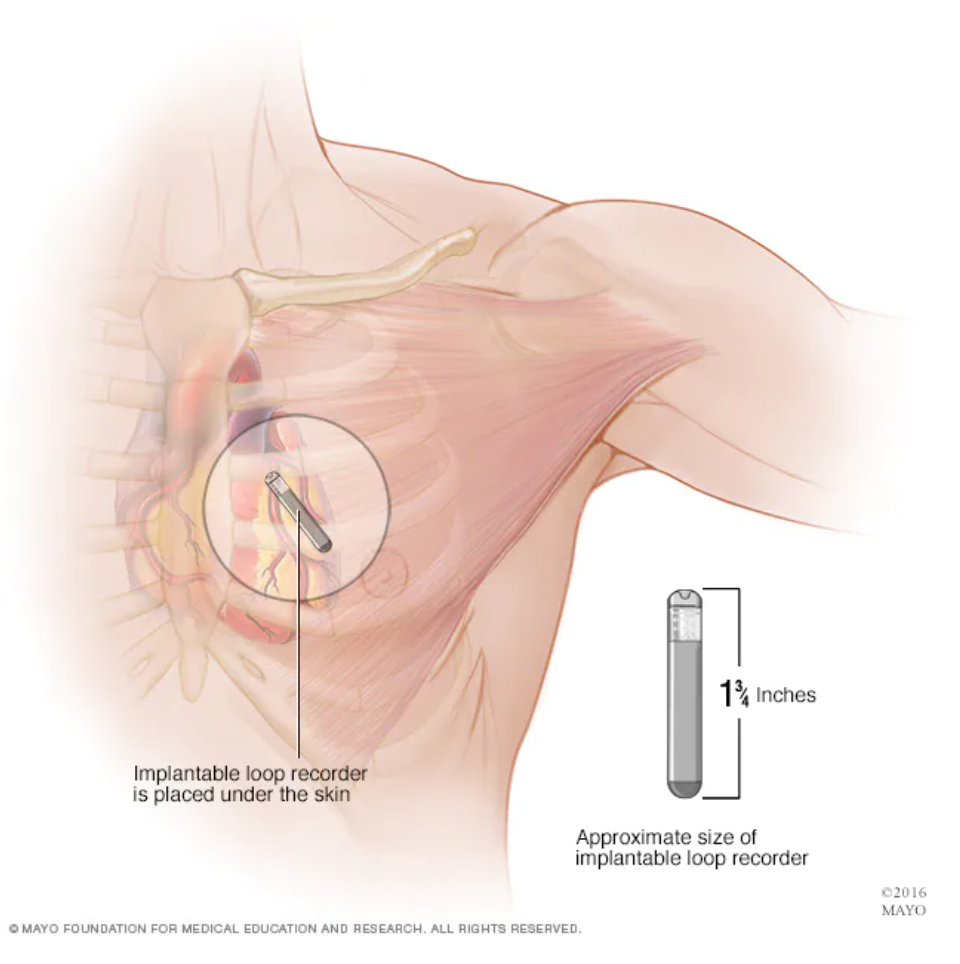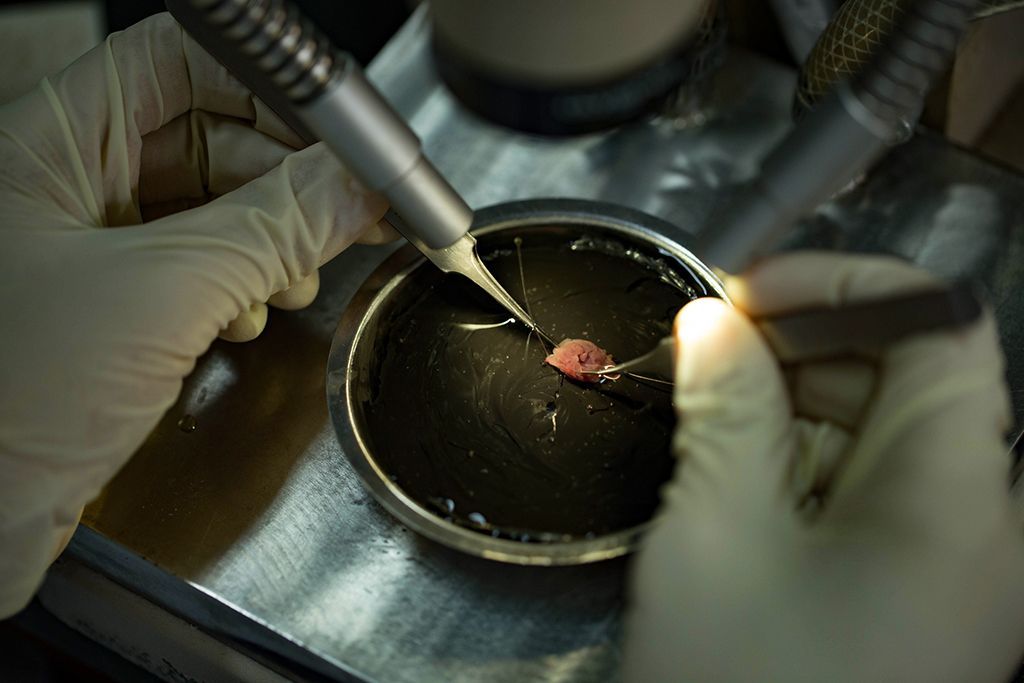HCM All Hearts Diagnostic Tools
Implantable Loop Recorder

An implantable loop recorder records the electrical activity of the heart.
A loop recorder is a small device implanted underneath the skin of your chest. It is about the size of an AA battery. It can be used to find rhythm problems that only occasionally occur but may be serious. This device records the same kind of information as an EKG, a Holter monitor, and an event monitor, but it records over much longer time periods. A loop recorder's batteries often last up to three years.
HOW DO LOOP RECORDERS WORK?
Loop recorders record a few minutes of heart activity, but continuously overwrite it. When the device is activated to record, it saves the previous few minutes' recording and the next few. This makes it more likely that rhythm problems can be identified.
What activates the recorder? The device is programmed to record certain heart rates. It also comes with a handheld activator that you can press to save signals. Your doctor will show you how to use this before you go home. Press the activator whenever you feel symptoms like palpitations or light-headedness. Most modern loop recorders transmit your recordings to your doctor wirelessly.
The loop recorder is removed when it is no longer needed or the battery has run down.
Citations:
Johns Hopkins Medicine. (n.d.). Loop Recorder Implantation. Johns Hopkins Medicine. Retrieved October 29, 2020, from https://www.hopkinsmedicine.org/health/treatment-tests-and-therapies/loop-recorder-implantation
Related Diagnostic Tools

 Translate
Translate














